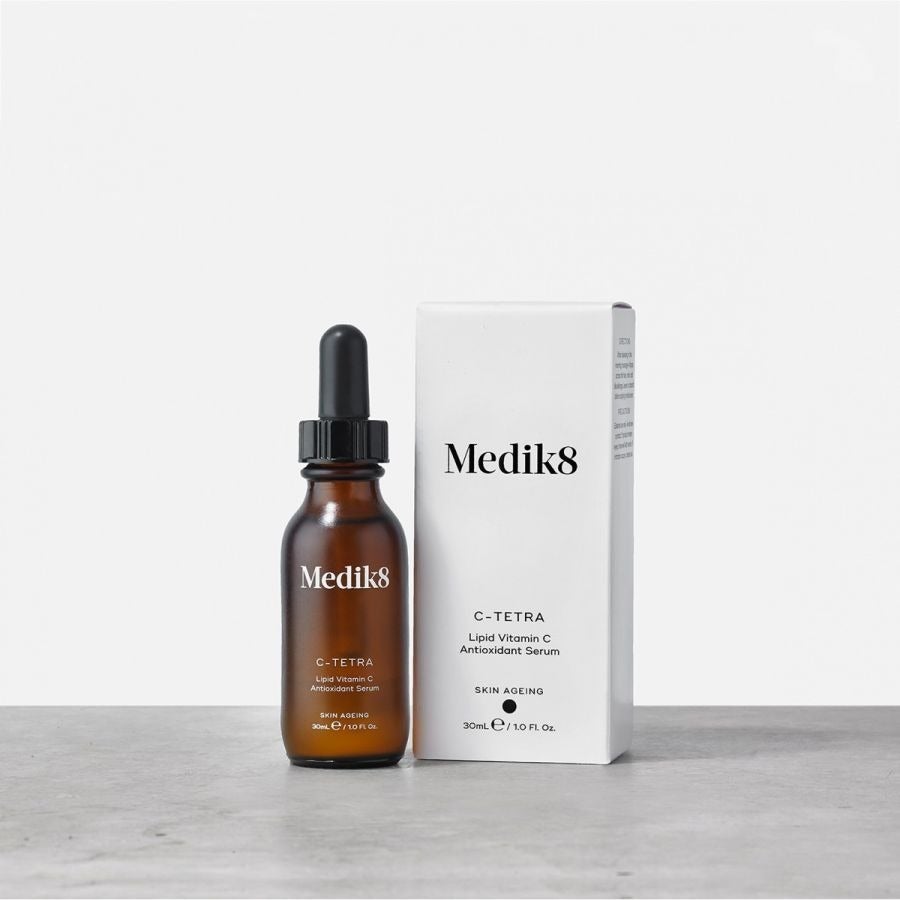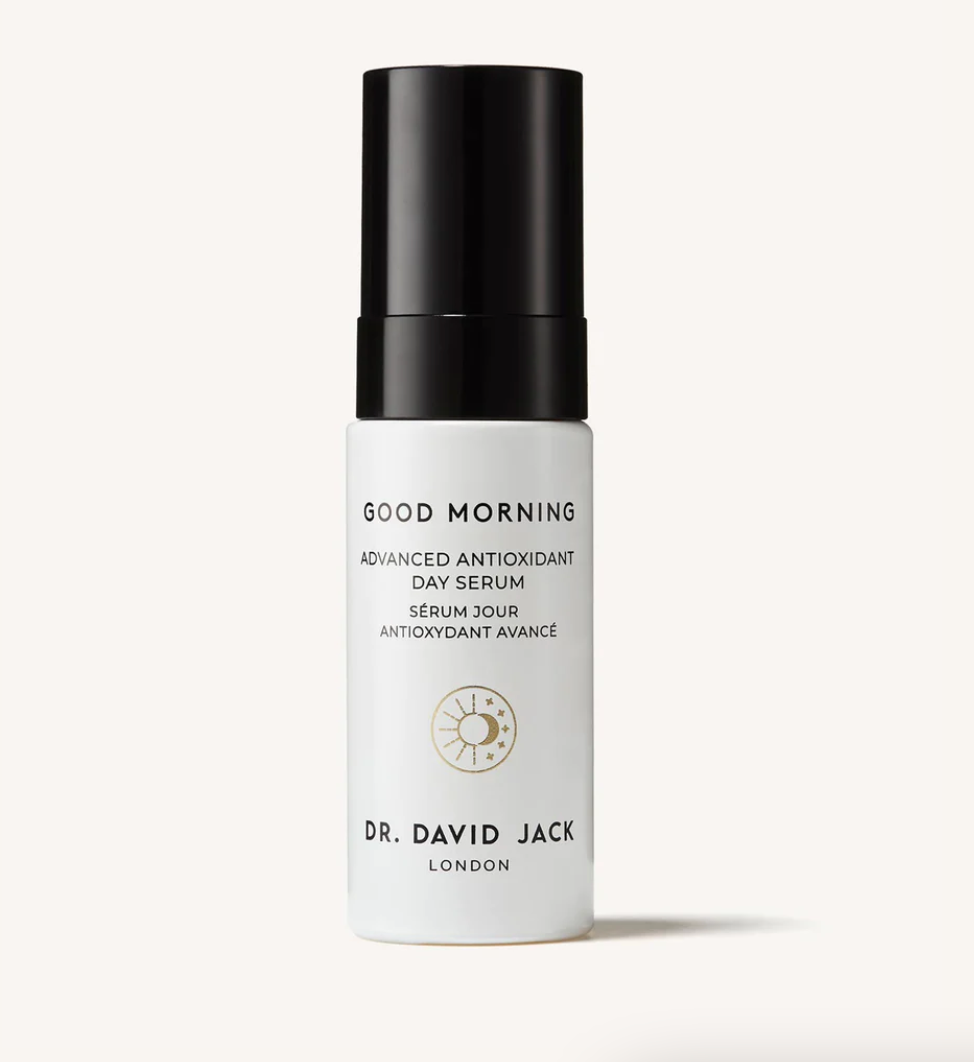The Best Way To Fade Red Marks After Acne, According To An Expert
Illustrated by Olivia Santner
You know when you were little and your mum would intone "Life’s not fair" after denying you the most basic of human rights (a second ice cream, more TV time, a trip to Disneyland – standard stuff)? Well, the older I get, the more I realise how right she really was and it's skin in particular which is struck with multiple injustices.
Just like you said, dealing with a breakout can be stressful and frustrating enough, but being left with this type of red acne scar, otherwise known as post-inflammatory pigmentation, really takes the biscuit. Uninvited marks taking up prime real estate on your lovely face and not paying rent? Can’t be having that.
AdvertisementADVERTISEMENT
Types of acne scarring
I asked Dr Ewoma Ukeleghe, also known as SKNDOCTOR, to break down the science for you. "You have two main kinds of acne scarring," Dr Ukeleghe says. "You have pigmentation, which is caused by the body’s inflammatory responses (i.e. the raised redness during a breakout) and you have indentations in the skin," explained Dr Ukeleghe. "It’s not necessarily the kind of spot, like a cyst versus a papule, that dictates the skin staining or pigmented patch, though. It’s more to do with your skin tone and how you treat the spot. For example, pigmentation after a spot is much more common in those who have darker skin tones."
Of course, picking a spot is never a good idea and I’m glad you resist the urge, but even that’s not enough. "Part of the body’s inflammatory response to a spot includes a surge in production of hormones like prostaglandin and things like fibroblasts, which in turn, set off your melanin-producing cells," added Dr Ukeleghe. "If you already have darker skin, you’re more likely to be left with pigmentation," but red skin staining after spots is possible in all skin types and tones.
How to treat staining left by acne
In terms of treating the staining left behind, it depends if you’re getting a handful of spots every month or if you’re still in the throes of a more active acne situation. "If a client comes to me and is concerned about pigmentation but they still have lots of breakouts, I always advise to get the acne under control first, before worrying about that," said Dr Ukeleghe. "Otherwise it just becomes a completely endless, self-defeating task. Once the acne is a bit more manageable, then we can look at this sort of aftercare." You don’t want to be stuck in some sort of loop, like Sisyphus, constantly tending to a mark only to have a new spot spring up millimetres away.
AdvertisementADVERTISEMENT
When you’re ready to treat the marks, Dr Ukeleghe said there’s a range of options that can be tailored to your budget, the amount of downtime you’re willing to endure, and how quickly you want results. If you’re after a more purse-friendly, gentle easing of post-inflammatory pigmentation, Dr Ukeleghe suggests vitamin C. "It’s a brightening ingredient, and when used in combination with other ingredients like ferulic acid and kojic acid, it can be very effective. I often recommend Medik8 C-Tetra, £30.70, or NeoStrata Enlighten Pigment Controller, £52."
She added: "If you are using some kind of drying lotion or spot gel, you could alternate between using that at night and applying something for pigmentation during the day to preempt it."
If you’re a bit more savvy with skincare, you could try something stronger but only under expert supervision. "I do have prescription-strength products that combine varying strengths of hydroquinone, retinol and azelaic acid, for example, and those can also be really effective, but they are very strong," advised Dr Ukeleghe.
Should you use exfoliants to fade acne scarring and pigmentation?
"It’s also really important when you’re using anything like this that you don’t overdo it and use lots of other skin peels or retinoids or exfoliators. I see and hear so many horror stories about people who’ve ordered an unreliable, mega-strength peel online and ended up with much worse scarring and pigmentation." And the golden rule: always wear a broad spectrum sunscreen with a minimum of SPF 50 during the day. Not only do the aforementioned treatments and ingredients make your skin sensitive to sunlight, but regularly using sunscreen will significantly reduce your chance of making post-inflammatory pigmentation worse and protect your skin from other sun-induced effects, such as fine lines.
AdvertisementADVERTISEMENT
The other in-clinic treatment Dr Ukeleghe suggested was a peel, either superficial or medium-depth, but she was quick to point out that the stronger variations can have downtime of up to a week. "This kind of pigmentation can absolutely be reversed, but if you’re looking for really quick results, you need to weigh up what’s safe and realistic for you," she explained. "If you barely have a skincare routine, I’d recommend something gentle, which you can get over the counter, and go slow and steady, rather than something super strong that will require round-the-clock vigilance." If you're confused about what ingredients may work for you, or you haven't seen any results over a number of weeks, it's worth visiting a qualified dermatologist. Always check that they are on the General Medical Council register.
Laser treatment to treat pigmentation
The other option is laser treatment. Dr David Jack offers Lumecca laser treatments in his Harley Street practice for focused rejuvenation, as well as his Good Morning! Serum, £89, for those who’d rather DIY it. It boasts a very high dose of vitamin C in a lightweight, non-greasy texture, and is a beauty editor favourite. Read more about using lasers to treat pigmentation and other skin issues here.
Again, the good doctor’s advice was to keep on using sunscreen to avoid the pigmentation darkening, and don’t use any extraction tools at home which could cause indentation, as well as pigmentation.
At Refinery29, we’re here to help you navigate this overwhelming world of stuff. All of our market picks are independently selected and curated by us. All product details reflect the price and availability at the time of publication. If you buy or click on something we link to on our site, we may earn a commission.
AdvertisementADVERTISEMENT










